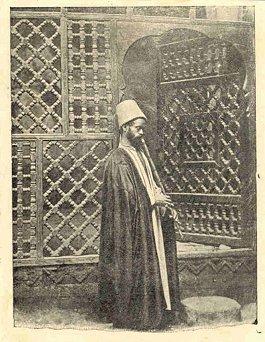General: "Islamic Jeans" - The futile pursuit of puritanism
this "islamic jeans" is just part of the ever continuing process of contemporary Muslims to Islamicise everything by creating the "Islamic other", purifying it from the "ill" of the conventional alterative and isolating the "Islamic other" from it.
a good part of the development of "islamic finance or economics" since the second part of 20th Century, is precisely influenced by the same process of Islamicising where it was created, purified to be isolated in the other sphere, for it to be the "Islamic other" of conventional finance and economics. what is interesting is how the secular Muslims have also followed a similar process of Islamicising but in their idiosyncratic defintion of Islamic economics, they have seperated state and religion and desacralized nature. the modernist Muslims also have followed a similiar process of Islamicising but with their catch up game of trying to "perfect" the perfected religion with the latest discoveries/inventions/changes while not having any qualms about compromising on Islamic principles. The recent phenomenon of apologists Muslims also are working on their Islamicising process of "Islamic economics" where they are ardously trying to catch up with the west while being apologetic for lagging behind their sahibs. the modernists, secularcrats and apologists not only concentrate their Islamicing efforts on economics but on all aspects of life.
In this postingfor simplicity sake let me just discuss the contemporary Muslims' approach of Islamicising everything by creating the "Islamic other", purifying it and isolating it from the conventional alternative.
let me parallel this contemporary Muslims' attitude with that of traditional Muslims in traditional Islamic societies with regards to how they redefined their cultures and space to counter influences that were not in accordance to their faith (or if you want to look at it as Islamicing also.)
lets take the Islamic Jeans for example. i have seen numerous other examples in the last ten years. the Islamic swimming suit, Islamic this and Islamic that of conventional apparels. in each of this, the initial challenge faced by the contemporary Muslim was that the conventional apparel infringed on some Islamic principle. the response hence was then to labour to find something alternative that does not compromise any Islamic principle, which then is classified and labelled as an Islamic other, hereby explicitly isolating it from the conventional alternative. This puritanistic attitude is somewhat new and pretty recent.interestingly in the traditional Islamic societies, the usual response, when faced with similar challenges, was different.
when Islam came to Indonesia, the biggest Muslim country in the world, it was already deeply entrenched in Hinduism, Buddhism and paganism. Batik was the conventional fabric used to make both the common male and female attires. however the batik then included iconic motifs that depicted sacred Hindu/Buddisht/paganistic icons such as snakes, dragons, eagles etc. When the Indonesians became Muslims they were unable to use this fabric, as it was against the Islamic principle of tauheed and aiconicism. The indonesians instead of discarding batik away, they creatively replaced these icons with a-iconic motifs representing flowers, flaura, geometric shapes etc. now up to here, this may seem similar to what contemporary Muslims are doing.The traditional Muslim then also engaged in an Islamicisation process. however that was vastly different from that of the contemporary Muslim.
Firstly the traditional Muslims never called it Islamic batik. They just called it batik like all other batik before it and after it from then till now over a period of 1000 years. The indonesians did the same for their furniture and others which also had strong hindu/paganistic iconic features. They never categorized those as Islamic furniture, Islamic this or Islamic that etc after transforming them to exclude those characteristics which violated/compromised certain Islamic principles. Here you see that which the traditional Muslims created, did not, thereafter, exist isolated from the precedent conventinal alternative. It coexisted but remained different and not isolated. It was still batik. Not Islamic batik. This allowed non-Muslims to also hence use it as it was not something solely for Muslims alone. They effectively transformed that thing that infringed upon the universal Islamic principle, into something that was not only consistent with that principle but which was universally applicable and accessible to people, hereby preserving the universality of Islam.
Secondly and most importantly, the traditional Muslim endevoured to transform that thing which infringed upon the universal Islamic principle, only as a consequence of his/her continued and constant perfection of his/her Islamic faith. It was part of their process of perfection (Ihsan) after having gone through the stages of ritualistic practise(Islam) and faith(iman)[refer to the Hadith Jibreel]. The approach contrasts distinctly from that of the contemporary Muslim who is stuck in his idiosyncratic way to create an Islamic other for everything and thereafter isolate it from the conventional alternative due to his zealous pursuit of puritanism and blind pursuit of ritualistic/literal practises only even when the practises in some instances compromise Islamic principles.
Therefore the remedy approach needed for contemporary Muslims is nothing different than that pursued by their predecessor traditional Muslims, whose contributions and changes benefited not just the Ummah but Mankind while the contributions and changes of the contemporary Muslims(or for that matter secular/modernist/apologists Muslims) have yet to reach and benefit their own kind. The contemporary Muslim must strive beyond ritualistic practices and seek revival of one's own Iman(faith) and subsequently pursue perfection of faith(Ihsan). The outcome of such a journeying will be the natural ability of Muslims to redefine their space and environment(in every aspect including "Islamic Economics") over time eternally, through absolute reliance and surrendering to divine destiny, such that the output transformation is not only in accordance to Islamic principles, but remain integrated and not isolated with the conventional alternative though remaining different from it and most importantly be universally accessible, applicable and beneficial to whole of mankind.

0 Comments:
Post a Comment
<< Home